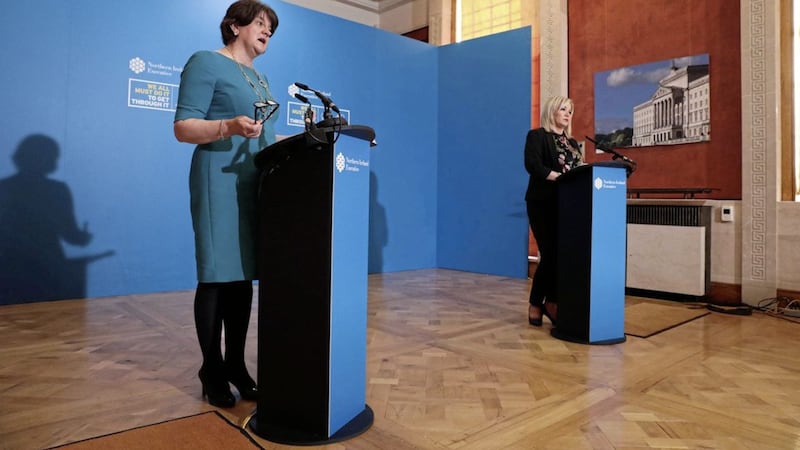THE STORMONT executive finds itself where the Dublin government was last week – between a rock and hard place.
On one hand there's the requirement for decisive action to combat the spread of Covid-19, while at the same time seeking to minimise the economic impact of any fresh restrictions. Dublin chose not to adopt the recommendations of the National Public Health Emergency Team (Nphet) and introduce 'level 5' restrictions, instead preferring more localised measures. However, this is an option that, based on previous experience, is unlikely to gain traction across the executive.
But whatever Stormont's ministers decide, it's vital that it is presented as a consensus decision so as to ensure the public is confident that their sacrifices are worthwhile.
At present though, not for the first time, the messaging is mixed. The leaking of details from the paper Robin Swann shared with the first and deputy first minister on Sunday night, and subsequent public debate, has created an atmosphere of suspicion ahead of today's crucial executive meeting. At the very least, it is an unnecessary distraction while it has also sown the seeds of disunity.
Chief Medical Officer Dr Michael McBride is believed to be advocating a fresh lockdown period of six weeks yet already his recommendation is being undermined, not by Stormont necessarily but by the DUP's Westminster team, who despite having a sizeable mandate don't share the same direct accountability as their executive colleagues.
Speaking last night, DUP leader Arlene Foster chose not to dwell on the divisions within the executive, stressing that she would listen to all the evidence while remaining cognisant of the economic implications of heightened restrictions.
Mrs Foster's suggestion that we merely persist with the current level of restrictions but with greater public adherence is unlikely to find support in an executive where her party's ministers are increasingly out of step with their colleagues.
Yet there's also the possibility the failure to reach consensus and get approval for new measures will have the same net effect, albeit without cross-party backing.
Where ministers have failed to show leadership during this crisis there's been a corresponding lull in public support. If the executive is to present a unified front as we enter the next challenging coronavirus chapter, then compromise rather contradiction is essential.








